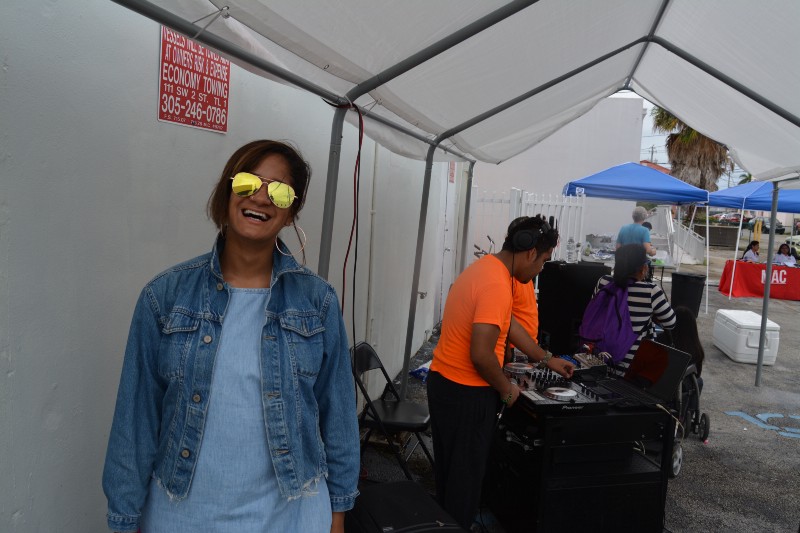HOMESTEAD, FLORIDA — On Saturday afternoon, Yareliz Mendez-Zamora, the daughter of Nicaraguan immigrants, had a clear message for her neighbors. With less than two days of early voting left in her home state, she enthusiastically told a crowd of immigrants in a heavily-Latino Miami suburb that they should vote, and vote early.
Standing in front of a paper Statue of Liberty at a community get-out-the-vote event, Mendez Zamora said that she will be voting on behalf of her undocumented parents.
“If my mom wasn’t scared to cross the border, how can I be scared to talk and to fight for my mom,” she told the crowd in Spanish. “So, for those who can vote, I want to tell you to remember your roots, remember where you come from, and don’t be scared.”
@YarelizMendez, a proud daughter of immigrants, delivered a passionate speech urging our community to vote #LatinoVote #UnitedWeCan #FL pic.twitter.com/CUWZWXhRqo
— Latino Victory (@latinovictoryus) November 5, 2016
Florida’s rapidly growing Latino population — including thousands of people with stories like Mendez-Zamora’s — could give Hillary Clinton the bump she needs to win the White House. Latinos make up almost 16 percent of the state’s voters, and as of Friday, at least 200,000 more Latinos had voted early this year than during all of early voting in 2012. And that’s with two days of early voting still to go.
As of Saturday, Democrats held a small lead in Florida’s early voting numbers. But according to a recent poll, that advantage could grow if more Latinos turn out. Clinton holds a 30–point lead over Donald Trump among Florida Latinos — a number that is both not a good sign for the GOP nominee and “terrifying” to Republicans across the country, according to one pollster. Trump’s odds of winning the White House are extremely low without Florida’s 29 electoral votes.
While Republicans worry about the future of the party after their nominee has insulted and alienated Latinos, groups in Florida are fighting to make sure that Latinos and immigrants continue to show up at the polls.
At another GOTV event on Saturday, Sharon Garcia, who lives in Houston but came to Miami with a labor group to canvass in the final days before the election, said she knew she had to make the trip so she could convince other children of immigrants that Florida could make the difference. “Here, we’re going to make such a big impact,” Garcia said, standing beside her mother who immigrated from Guatemala and cannot vote.
National Latino and immigrant-focused organizations have also dedicated resources to making sure Florida Latinos vote in record numbers. While essential issues like immigration reform are on the line, Jess Torres, deputy communications director with Latino Victory Project, said Latinos are also excited to vote for a politician who will keep progressive policies like Obamacare in place.
In Homestead, where more than half the population speak Spanish as their first language, signs for Obamacare enrollment opportunities are prominent. While Trump has slammed the president’s signature achievement in Florida, a recent poll found that most Florida Latinos support the Affordable Care Act. Both President Obama and Clinton have used that to their advantage, touting the successes of Obamacare during their multiple campaign swings through the Sunshine State.

While Florida’s Latino voting population is larger than ever, many at the GOTV event expressed anger that they cannot participate because of their immigration status. Homestead resident Jose Delgado Soto, who immigrated from Mexico 30 years ago, said he feels as if his hands are tied.
“What we need is immigration reform, but I can’t vote because they haven’t passed this law,” he told ThinkProgress in Spanish “I pay taxes. And I want the rights that everyone else has.”
